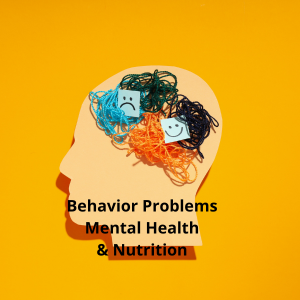Moving Beyond the Labels of Behavior Problems

We have created labels for people who have problems in social relationships, from obsessive-compulsive disorder, paranoid personality disorder, antisocial personality disorder, and narcissistic personality disorder. These labels describe people who have difficulty creating functional, cooperative, and happy relationships with others. These issues are common today and reports say that they affect 10% of the population.
Although these labels are diagnostic, they are often somewhat arbitrary. They are not based on specific tests like lab tests, X-rays, or observed physical symptoms. The label is applied when your behaviors match a specific list of behaviors. This is concerning because these labels exist on a spectrum. Once an individual is given a label, they may feel that this label now defines who they are. Leaving them feeling that they have lost the ability to change.
In this issue of Sunshine Sharing, Steven shares information beyond the label and takes a holistic approach to behavioral problems. Nutrition, toxins, and trauma also seem to be involved, and you will learn tips to improve these areas.
Behavior Problems – Root Causes
Nutrition
Some interesting evidence demonstrates how nutrition affects mental health and behavior. Studies in cats and mice show that the diet they were given did affect their mental and physical health. The mice and cat groups fed lots of sugar did the worst. Symptoms in these cats and mice ranged from fat deposits, skeletal deformities, irritability, and nervousness. Barbara Reed’s juvenile studies can be found in her book “Food, Teens and Behavior.” She found that juveniles who ate many nutritional deficient processed foods and snacks seemed to have more behavioral problems.
Toxins
Many substances are toxic to the brain and can adversely affect behavior. Lead can be found in drinking water, soil, paint, food, spices, and products that many consumers use. Lead has been found to cause problems with memory, the ability to learn, and mood disorders like anxiety and depression. Mercury also has negative impacts on the immune and nervous systems and can be found in many products like dental fillings, batteries, and certain pharmaceuticals, as well as our environment and reservoirs. Organic solvents, which are solvents that dissolve another substance, are found in paints, automotive fluids, spot removers, dry cleaning solutions, and many industrial applications today. These also adversely affect the nervous system, and long-term exposure can cause depression, anxiety, delusions, and even, some say, dementia.
Trauma
One of my favorite saying is no one makes it to 40 without some trauma. It applies to those who are dealing with chronic pain or illness, an accident, surgery, abuse, or service in a war. Traumas trigger the fight-flight-freeze response in our nervous system. Traumas require emotional support for recovery. You can seek support from family or friends, spiritually or professionally. E.M.D.R. is a form of therapy that helps individuals reprocess their memory to heal or better deal with trauma.
Natural Solutions
After sharing the above root causes with you. To reduce your risk or improve your current situation, you can make sure you eat nutrient-dense foods and get rid of sugar-laden foods like cookies, candy, cakes, pies, soda, and boxed foods. Eat whole foods and grains, lean protein, and healthy fats. Also, support a healthy – gut, a.k.a. your second brain. Make sure to support your nervous system with B-complex vitamins. Detoxify your environment and drink clean water. Also, consider adding Bach Flower Essences to help keep you feeling more balanced. If you need help with creating a healthier lifestyle, we can help with out 10 week E-Mail program!
